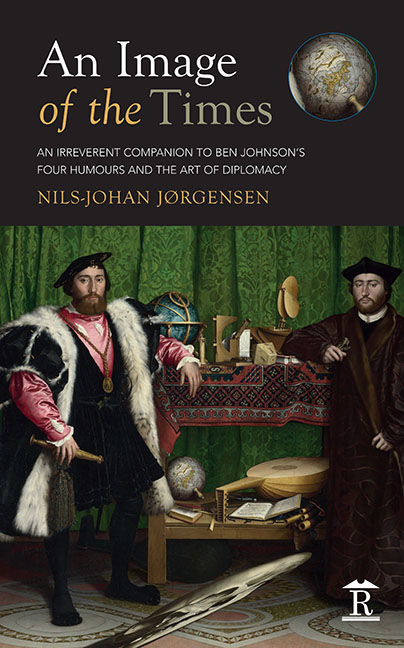Book contents
- Frontmatter
- Dedication
- OTHER WORKS IN ENGLISH BY THE SAME AUTHOR
- Contents
- Acknowledgements
- Induction
- Chapter 1 Ben Jonson and his Sources
- Chapter 2 Humorous Characterization in the Comedies of Ben Jonson
- Chapter 3 The Influence of Jonson on Seventeenth And Eighteenth-century Comedy
- Chapter 4 The Intrusion of Humorous Characterization into the English Novel
- Chapter 5 The Meaning of the Comic
- Chapter 6 Nomadic Humours
- Chapter 7 Unconscious Revelation
- Postscript
- Index
Chapter 3 - The Influence of Jonson on Seventeenth And Eighteenth-century Comedy
Published online by Cambridge University Press: 06 May 2022
- Frontmatter
- Dedication
- OTHER WORKS IN ENGLISH BY THE SAME AUTHOR
- Contents
- Acknowledgements
- Induction
- Chapter 1 Ben Jonson and his Sources
- Chapter 2 Humorous Characterization in the Comedies of Ben Jonson
- Chapter 3 The Influence of Jonson on Seventeenth And Eighteenth-century Comedy
- Chapter 4 The Intrusion of Humorous Characterization into the English Novel
- Chapter 5 The Meaning of the Comic
- Chapter 6 Nomadic Humours
- Chapter 7 Unconscious Revelation
- Postscript
- Index
Summary
Richard Brome
THE SATIRIST AND romantic playwright, Richard Brome, began as Ben Jonson's manservant and literary student. They remained friends after he became a rival writer of altogether twenty comedies. The success of Brome's (now lost) play The Love-Sick Maid, or the Honour of Young Ladies (1628) which somehow overshadowed Jonson's play, The New Inn, led to a few less than generous comments from Jonson, but this was a passing phase in a long friendship.
In ‘An Encomium in praise of the Author’, before the ‘Prologue’ to Brome's early and successful play, The Northern Lass: or, A Nest of Fools (1629) Jonson wrote:
I had you for a servant, once, Dick Brome
And you perform’d a servant's faithful parts,
Now you are got into a nearer room
Of fellowship, professing my old arts,
And you do them well, with good applause,
Which you have justly gained from the stage,
By observation of those comic laws,
Which I, your master, first did teach the age.
You learn’d well and … it serv’d you time,
A prentisship, which few do now a-days.
It is Jonson the mentor giving high-flown praise, with more than a hint of irony to his apprentice, but emphasising that it was he who first introduced and taught the laws of comedy to the age. Brome is succeeding because he has followed in his master's footsteps to the stage. Jonson is nothing if not confident and assertive and he remains the patriarch to Brome. The Northern Lass is a comedy of love and marriage, interplay between four women and five men which ends happily after plotting, intrigue and disguise. Luckless gets Constance, the Northern lass, Tridewell gets Fitchow, Squelch gets Trainwell and Widgin gets Constance, the whore. The playwright shows sympathy for the underdog, the whore and the servant, and, in observing his Master's wit and comic laws, he attacks the difference between the written law and its corrupt use in the real world.
The Antipodes (1638) depicts the difference of manners and morals between the northern and the southern hemisphere. The prefatory poem to censuring critics begins: ‘Jonson's alive! The world admiring stands.’ Indeed, Jonson had written in Discoveries: ‘How many have I knowne, that would not have their vices hid? Nay, and to be noted, live like Antipodes to others in the same Citie?’ The play was staged at the Globe in 2000.
- Type
- Chapter
- Information
- An Image of the TimesAn Irreverent Companion to Ben Jonson's Four Humours and the Art of Diplomacy, pp. 92 - 117Publisher: Amsterdam University PressPrint publication year: 2015



